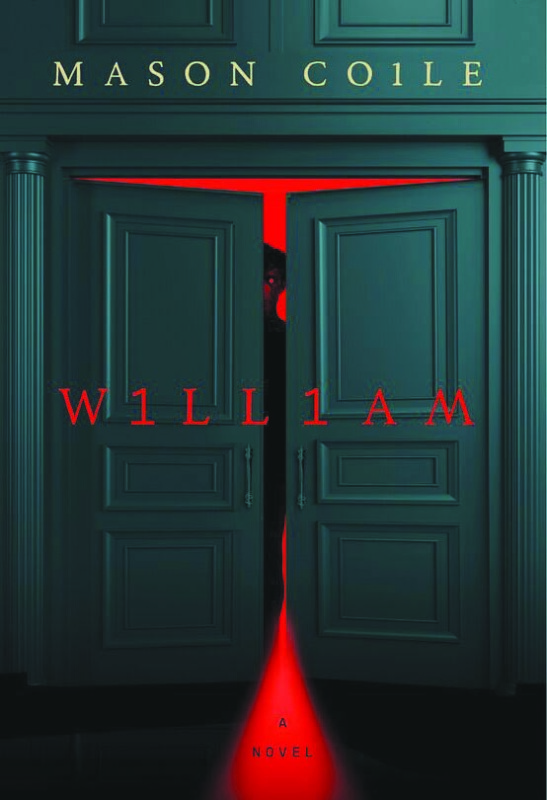William, by Mason Coile (G.P. Putnam’s Sons, 224 pages)
Earlier this year, Ray Kurzwell gave us a cheery picture of the coming world under artificial intelligence in The Singularity is Nearer. A bone-chilling alternate view is offered in Mason Coile’s novel William, a stand-out in the nascent genre of “AI horror.”
You probably won’t want to read it right before you go to bed, but it is a perfect autumn read as the story transpires on a single day: Halloween.
The titular “William” is a half-finished robot that is the project of Henry, a brilliant agoraphobic engineer who can’t leave his home without dissolving into panic — fans of the Breaking Bad universe might think of Chuck McGill in Better Call Saul, just with a different illness and profession.
Henry has built several robotic creatures, including a dog and a creepy little magician riding a small bicycle. But William is to be his ultimate creation — the robot appears to have developed consciousness — and Henry’s preoccupation with the project seems to stem not so much from personal ambition but from distracting himself from his crumbling marriage to Lily, a wealthy computer engineer.
“Things are bad between them, but not too bad,” Henry keeps reassuring himself, even though “he worries that his assessment of the bridgeable distance between himself and his wife is an error of judgment — the same made by millions of husbands right before the end.”
Things have regressed to the point where he is sleeping in the spare room of the couple’s old but cutting-edge Victorian home, a place where windows open, water heats and doors lock via voice command, in a neighborhood where drones “buzzing like honeybees” fly overhead with deliveries all day. Lily wears glasses that are connected to her computer, allowing her to access email by blinking.
It’s the sort of smart house we can envision not too far in the future. Henry created it, like he created William, who spends his time locked in the attic reading books and listening to NPR and Broadway show tunes on a transistor radio. While he can learn and converse with Henry, his body consists only of a torso, arms and head, and he is valiantly trying to make himself mobile, even to the point of attaching wheels to his chair while Henry is away.
It’s clear that Henry’s mental illness — the onset of which is not initially explained — is contributing to the couple’s marital problems, although Lily seems to be trying to help him as best she can. On this day, she has invited two former coworkers, Paige and Davis, to the house for lunch, and as they meet we see that he’s not only agoraphobic but seriously antisocial, the kind of person whose conversation always seems awkward or haughty. (One of the first things he says to Paige, while internally noting “the wasted efforts that have gone into her appearance,” is “your sleeves are too long.”)
After a bit of this uncomfortable interaction, Henry decides the best way to get through the visit is to introduce everyone to William. Even Lily hasn’t seen him, or even been allowed into the attic at this point — she only knows that her husband has been working on conscious AI.
Henry goes up first, to warn William that he is having guests, asking him to behave — the robot has a tendency to make somewhat snarky contents, to try to psychoanalyze Henry, explain his problems. “‘Don’t worry, I’ll be sweet as pie,’ the robot says, drawing a cross over its nonexistent heart’.”
Of course, he is not. And what transpires when the four go up to the lab sets in a motion a cascade of tension that leads to full-blown horror, which is not typically the kind of fare I enjoy, either in literature or in film. But I took one for this team, and was ultimately glad I did, as a series of shocking twists in the story, and the existential questions the novel raises more than made up for the unpleasant scenes.
Mason Coile is a pen name for Canadian author Andrew Pyper, who seems to be channeling Stephen King in this story. He packs a lot to ponder in this short book, which some have described as a one-sitting read. (True only if you tend to sit for long periods.)
Pyper has said that he originally wrote William as a short story, then tried to sell it as a screenplay without success, and only turned it into a novel after the first iterations failed to sell. He seems to have found the perfect length — the novel is tightly coiled, like a snake, with just the right amount of exposition, and a punch-perfect ending. It is the sort of book you have to read twice — the second time to go back and see all the foreshadowing of events that you might have missed the first time.
It’s also the sort of book you’ll want to share and talk about it, as it raises interesting questions about the nature of AI and whether artificial intelligence is something around which human beings can really install guardrails. Even God didn’t seem to do that, as Lily observes at one point — God just created without thought to the consequences, she thinks. “If beauty or discovery was the result — if chaos was the result — it didn’t matter. It only mattered that something astonishing was born.”
I don’t like horror, but I loved this absorbing, disturbing little book. A

